Documentation

“A contextualization of interdisciplinarity” – Gido Broers
What is context? Since context is a concept that can be applied to many domains and functions as a base for interdisciplinary research (and practice), it is relevant to start here with a brief description of this concept, as described by Kaiyu Wan: The word “context” is derived from the Latin words con (meaning “together”)…
Read more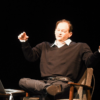
“Walking Through an Uncanny Valley” – Jose Hopkins B
The Uncanny Valley is a concept coined by Masahiro Mori and borrowed by theatre director Stephan Kaegi[i] to make a homonymic performance. This concept is used to explain the dip in human’s affinity and affective pairing in relation to a replica’s human likeness. The valley’s dip is produced when an apparently human-like replica, for example…
Read more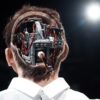
“(Human) being: striving for perfection” – Gido Broers
While attending and participating in the Performing Robots Conference I have been thinking a lot about the relation between humans and robots and the different kind of questions that emerge out of this relation. In most of the panels, lectures, and performances this relation – or interaction – was used as a starting point for…
Read more
“The open dramaturgy of a digital archive project” – Gido Broers
Eef Masson addressed in her lecture “Experience and Experimentation in the Sensory Moving Image Archive Project” several issues with regards to digital archives, and more specifically in the context of the Sensory Moving Image Archive Project. The aim of this project is “to establish how these groups [artists, the creative industries and researchers] can explore,…
Read more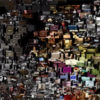
“Reconsidering Digital Moving Image Collections- SEMIA project” – Mavi Irmak Karademirler
The digitization of collections and archives adds a new dimension to the pre-existing materiality of sources; this implies that the research can be done on a much larger scale (Van Dijck 2016). For this reason, the development of tools for research is getting more and more critical. With digitization, the use of the archives has…
Read more
“Sense-ing the Digital Archive” – Dennis Jansen
The archive in digital space, whether born-digital or digitized from an existing collection, presents us with a variety of challenges related to its ontology. The first instinct may be to say that the digital is a deceptively ‘flattening’ medium—while it ostensibly contains all other media, it reduces their materiality to pieces of software displayed on a…
Read more
“The Politics of Categories: Navigating through archives as we navigate through the world” -Jose Hopkins Brocq
Archives, as we know them, are usually associated with academic fascinations as repositories and containers of the past, proving old materiality with an added value of originality and therefore, validity. According to Helen Freshwater, the ways of approaching the archives have changed after their consolidation as an accumulation of documentary evidence in the first decades…
Read more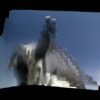
“The SEMIA Revolution: Denaturalizing Our Conceptions of Knowledge and Discovery” – Laura Jimenez Rojas
The metaphors we use to describe our thoughts, practices and projects matter. In this TiM session, Eef Masson presented the Sensory Moving Image Archive -SEMIA-. This is an interdisciplinary project that challenges our traditional conceptions about what a digital archive is and what could it be. Their point of departure is the distinction between searching…
Read more
Call For Volunteers
At the Performing Robots Conference, in collaboration with SPRING Performing Arts Festival, we are looking for enthusiastic volunteers to join our team! It will be a great opportunity for you to meet people with similar interests, as well as artists and scholars of the field, and for you to enjoy a creative environment. Volunteers are…
Read more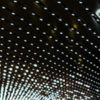
“How can we ever describe the agency and experience of human beings?” – Gido Broers
Arun Saldanha’s lecture, which was called Stratification of cyberspace: from experience to waste, was for me a step outside of my academic comfort zone. In my own research, I focus mainly on theatre and spectatorship which I am exploring through a cognitive neuroscientific lens. This does not mean that Saldanha did not address interesting and…
Read more
